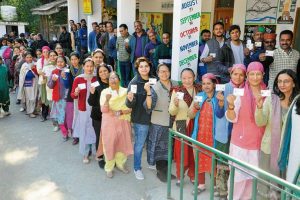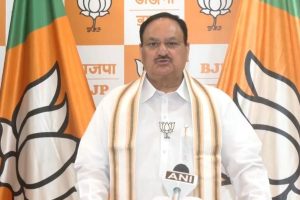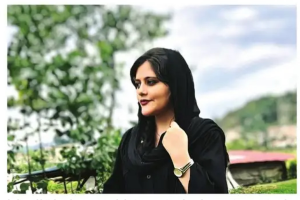In the lingering night of Covid-19, the world is waiting with bated breath for that faint glow in the horizon-an effective vaccine that will provide long-term protection against the dreaded disease and help the world limp back to at least some kind of normality.
The disclosure by Pfizer and Germany’s BioNTech that a vaccine they are developing has been found to be more than 90 percent effectivecoupled with the weekend’s announcement by AstraZeneca that they were likely to get 100 million doses ready by December for a vaccination drive across India- -has sparked cheers across the world and propelled global stock markets to an all-time high.
However, experts in north Bengal, as many others across the world, warn that the euphoria should be tempered and any return to normality may take time.
Dr Arunava Sarkar, head of the department of microbiology, North Bengal Medical College and Hospital, told this correspondent today that many questions concerning the vaccines remained unanswered. “The developers of the vaccines are themselves claiming that their products may provide protection for only a year. We are totally in the dark about the nature and the amount of research that have gone into the development of these vaccines. We also do not know if it is a killed, conjugated, subunit or live-attenuated vaccine. No literature on the details of the vaccines is available and neither the World Health Organization nor the national health authorities have come up with any solid and concrete details of the nature and efficacy of these vaccines. We will be able to understand their characteristics and comment on them only after we learn about them in exhaustive detail. Their actual effectiveness could be ascertained only through the epidemiological surveys conducted when they are administered on a large scale,” he said.
According to Dr Sarkar, vaccines are mostly the product of “accidental or incidental” discoveries and not prolonged researches. “There is always a doubt about RNA and influenza vaccines and what makes the production of an effective Covid vaccine difficult is the rate at which the sub-types of the novel coronavirus are multiplying every month. At the initial stages there were only 11 sub-types. But now we have over 20 sub-types of the virus and there are very alarming documentary evidence of reinfections,” said the veteran microbiologist.
Renowned surgeon in Siliguri Dr Kaushik Bhattacharya, who agreed with Dr Sarkar, said that despite hopes raised by the Pfizer’s Covid19 vaccine, it would take huge efforts for India to defeat the coronavirus, with its 1.3 billion population and the world’s second-highest caseload. “The Pfizer vaccine needs to be stored at temperatures matching an Antarctic winter-a logistical nightmare for India with heat waves exceeding 50º C, few ultra-cold freezers, inadequate carrier-packs, patchy power and a largely rural population. The vaccine has to be maintained at minus 70º C-nowhere on the planet does the logistical capacity exist to distribute vaccines at this temperature,” Dr Bhattacharya said.
Nearly half of the leading Covid-19 vaccine candidates have announced that the initial trials showed their experimental Covid-19 vaccines were more than 90 percent effective, but Dr Bhattacharya pointed out that they needed cold storage as low as minus 70º C, requiring seamless cold chain distribution from manufacturers to airports to remote villages and an enormous number of ultra-cold freezers, each of which cost around 10,000 US dollars. “This is a new challenge to be urgently managed because the common vaccines such as DPT, tetanus or polio vaccines are needed to be stored at temperatures ranging between four degree and six degrees centigrade. If a dose of the vaccine exceeds the required temperature of 70º C at the time of administration, the recipient may get infected by the live virus of the disease,” he cautioned.
In such a scenario, the ace surgeon maintained that any celebration would be premature and the only way for humanity to protect itself from the deadly virus would be to follow the standard operating procedures laid down by the authorities across the world.
“The World Health Organization estimates about 70 per cent of the global population must be inoculated to end the pandemic and this will definitely take a long time. Besides, the challenges involved in manufacturing, transporting and maintaining the extremely low temperatures for the preservation of the vaccines makes it imperative for us to wear masks, wash hands and maintain social distance till researchers discover vaccines which would survive at high temperatures and the authorities ensure proper inoculation for over twothirds of the global population,” he said.











